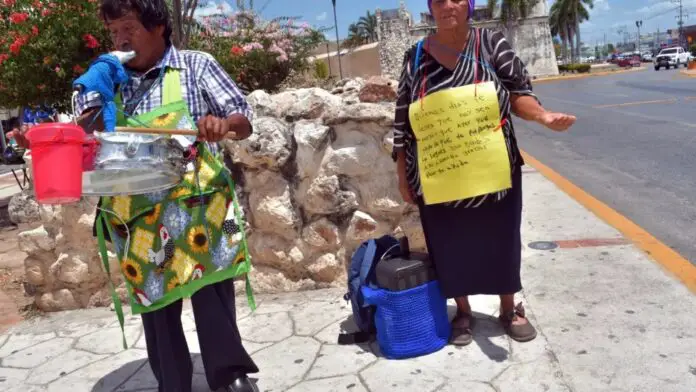The state and municipal governments of Campeche are collaborating to regulate commerce in the Historic Center, aligning their efforts with UNESCO guidelines to preserve the city’s status as a World Heritage Site. Discussions are underway among the Heritage Authority and other state agencies to address the activities of artisans, street vendors, and homeless individuals within the walled city, according to Director Rosa Olvera Salinas.
Following the eviction of artisans from the main park on April 18, the Heritage Authority emphasized the need to enforce the 2021 municipal law, enacted under Mayor Biby Karen Rabelo de la Torre, which prohibits street vending in the Historic Center. Olvera Salinas revealed that UNESCO has recommended implementing the UNESCO Chair initiative, involving Colombia, Panama, and Mexico, to ensure compliance with heritage legislation.
While the state administration acted in accordance with the law, Governor and Mayor Biby Karen Rabelo de la Torre sought to mitigate the impact on commerce by relocating artisans to Juan Carbó Square. This move, described as a gesture of generosity amid economic challenges, aims to balance legal compliance with the livelihoods of artisans, who often sell their products during vacation periods.
Initial meetings between municipal authorities and the Campeche Government Secretariat have set the stage for cross-agency working groups. These groups will involve state departments overseeing public spaces and municipal offices to develop solutions that protect citizens’ interests while preserving cultural heritage.
Olvera Salinas stressed the importance of collaboration among agencies such as Security, Traffic, Cultural Heritage, and the City Council to regulate street vendors effectively. Issues such as flora preservation and waste management are also being addressed through existing programs, with proper coordination seen as key to achieving successful outcomes.
The State System for Comprehensive Family Development (DIF) is expected to play a role in assisting homeless individuals in the Historic Center. Olvera Salinas emphasized that the process must prioritize human dignity, implementing measures to reconcile with merchants, homeless individuals, and children selling goods in the area.
The resolution of these challenges, she noted, will have a direct and lasting impact on the conservation of Campeche’s cultural heritage.
Source: Por Esto




